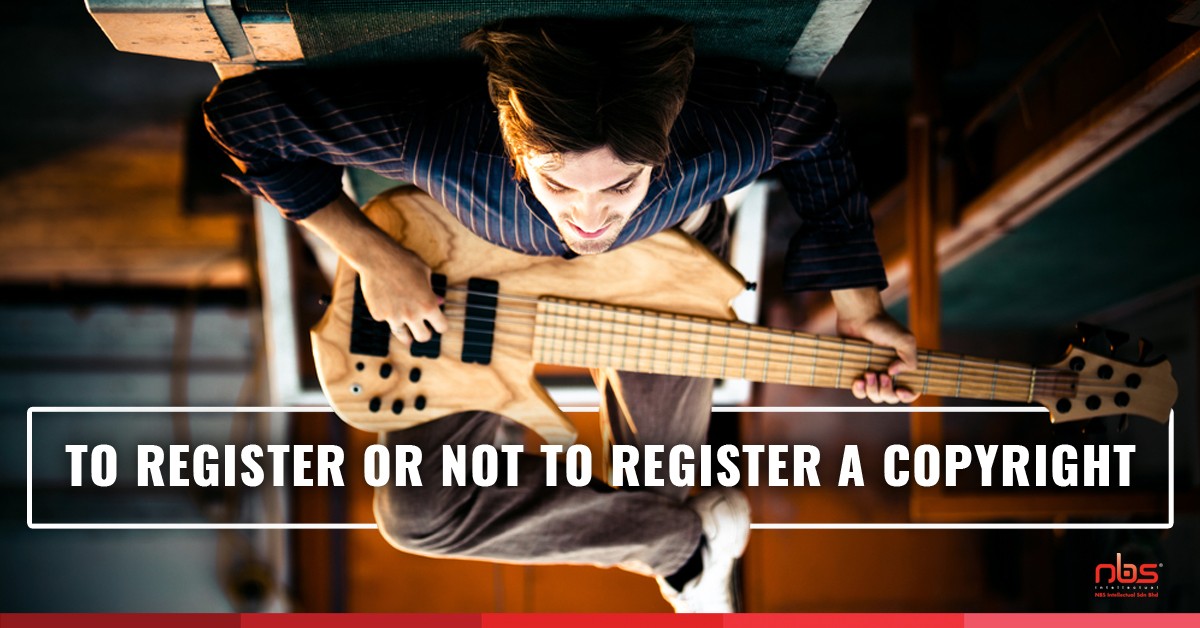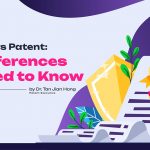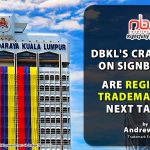To put it simple, Copyright is a legal right created by the law of a country that grants the creator of an original work exclusive rights for its use and distribution. Under Section 7 of the Copyright Act 1987, works which are eligible for copyright includes the following:
1. Literary Works
2. Musical Works
3. Artistic Works
4. Films
5. Sound Recordings; and
6. Broadcasts
Do note that the rights are protected as soon as it fulfilled the criteria of a copyrightable works irrespective of its quality or its creation purposes. Copyrights is not extendable to mere ideas, procedure, methods of operation or mathematical concept as such which is somewhat similar to Patents. So what criteria should a work fulfilled in order to be validly copyrighted? Section 7(3) further provides that a copyrightable work MUST:
1. Demonstrate sufficient effort has been expended to make the work ORIGINAL in character; and
2. The work has been written down, recorded, or otherwise reduced to material form.
Do note that if a work cannot be protected under Copyright if it has been protected under any other written laws such as an Industrial Design. Occasionally, we would received or heard some comments about amending another person’s work and thereby claiming the amended version of said work to be their copyrighted works. To those who actually heard about this and actually intends to commit an act which revolves around amending a copyrighted work, you better watch your back as there is a fine line between a derivative work and an actual improvisation. The author and/or owner of an original copyrighted work also enjoys protection of derivative works whereby said works are mainly derived from his/her original work whether in part or whole. Some good examples which able to demonstrate this kind of works are movies based on best-selling novels and translation of an English written novel into different languages. Therefore, unless you got yourself a license to create a work which based on a pre-existing work, all unlawful/unauthorized adaptation or derivation from a copyrighted work will constitute an act of infringement of copyrights.
THE BERNE CONVENTION
For your information, the Malaysia Copyright Act 1987 and various other common laws are the major authorities governing the laws on Copyrights. It is also worthwhile to know that the laws were made in adaptation to the Berne Convention for the Protection of Literary and Artistic Works (1886). The convention provides a general guidance to all contracting parties in the following manner:
1. The national treatment – all copyrightable works in one contracting states must be given the same protection in another contracting states as it would grant its own citizen;
2. Automatic protection – protection granted cannot be conditional; and
3. Independence protection – protection granted is independent of the existence of protection in the country of origin of the work. Meaning, if protection has ceased in its country of origin, protection in another contracting states may be denied even if it provides a longer protection period.
The protection duration of a valid copyrighted works as provided under the Berne Convention is granted until the expiration of the 50th year after the author’s death. Meaning, the entire life of the author plus an additional 50 years upon the author’s death. The Malaysian Copyright Act 1987 reflects the Convention in terms of duration of copyright within Section 17 to 22. Please be informed that if you intends to protect your rights in another country, you would have to materialise your work in that particular country who also happens to be a contracting states as there are no such thing as an international copyright.
OWNERSHIP OF COPYRIGHT
Who actually own the copyright to works created? It is important to establish whether you actually own the copyright or merely enjoys rights as an author or performer. Section 26 of the CPA87 stated that copyright shall vest initially in the author UNLESS such a work is commissioned by a person who is not the author’s employer under a contract of service or apprenticeship, OR not commissioned as aforesaid, but such a work is made in the course of the author’s employment. Meaning, if you created the work because a contract stated as such or because your boss ask you to, then you do not own the copyright to the works created. However, it can still be subject to any agreement between the author and contractor/employer which exclude or limit such a transfer. As such, it is very important to clarify your legal standing prior to creating your work.
VALIDITY OF COPYRIGHT
Unlike other types of Intellectual Property, Copyright need not be officially registered to contain legal effect so long as you are able to fulfil Section 7 of CPA87 i.e. original and reduced to material form. Do note that the date of creation for a copyrightable work is extremely important as all personal keepsake which claims it to be the first creation date is rebuttable in court. Most disputes for copyright usually ends up in court to decide who actually first created and own the copyright, and who is infringing whose rights.
To remedy such a dilemma, Malaysia has established a voluntary notification system which allows copyright owner to voluntarily notify the IP Registry (MyIPO) of their creation and register it within its database. A certificate will then be issued bearing the title of your work along with its date of creation and date of filing. One advantage is that no examination is involved to judge your work on the Registry’s side and the certificate issued is legally enforceable and is very difficult to rebut unless substantial evidence could be provided to prove its validity and authenticity of its ownership. It is advisable for copyright owners to voluntarily notify the Registry about their works to get an extra layer of protection.
This article is merely a small introduction and summary to copyrights and what needs to be aware of if you actually own a work which eligible for protection under copyrights. Further information is made available on a case by case basis in terms of infringement, defence and remedy. Which is what the Registry, legal firms and IP firms are meant for, to serve and provide information, consultation and advise to those in need.
If you need to know more about the trademark registration process or questions,
Please Contact Us: 03-58914846
Or Email Us: [email protected]
Website: www.nbs.com.my
©ANTHONY THAY OF NBS INTELLECTUAL SDN. BHD.
ALL RIGHTS RESERVED







Comments are closed.